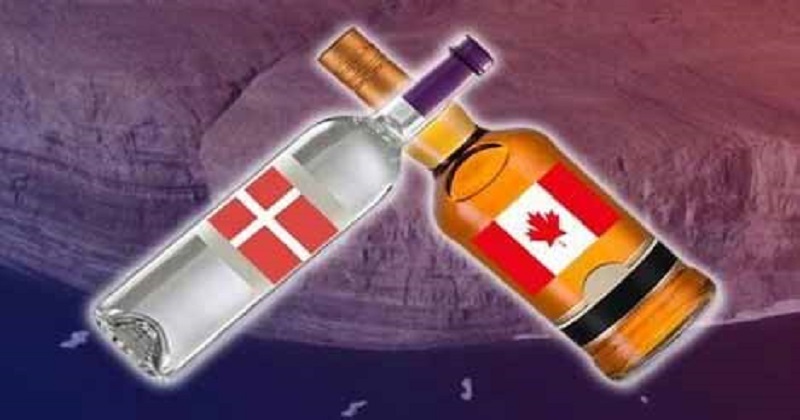
Denmark and Canada have resolved to formally terminate their ‘lighthearted’ dispute over an uninhabited Arctic island that has lasted almost 50 years. Addressed as ‘whiskey wars’, the NATO allies have been wrangling about Hans Island, which is located halfway between Greenland and Canada’s Ellesmere Island, since 1971, when the disagreement first arose at a bilateral conference to discuss territorial limits.
The fight was dubbed ‘Whisky War’ because military ships visited the island and planted flags and bottles of Canadian whisky or Danish schnapps to indicate their territory. Both countries will have shared ownership of the 1.2-square-kilometer granite mound under the new deal. The new boundary will approximately divide the island in half, following a natural valley from north to south.

‘We’re creating a precedent. We are demonstrating to other countries how territorial conflicts may be resolved. It is possible to resolve a disagreement, and the best way to do so is via principles and standards that all sides recognise,’ Foreign Affairs Minister Mélanie Joly said at a signing ceremony in Ottawa.
‘I think it was the kindest of all conflicts,’ Joly said, adding that she thinks Canada will now be able to compete in the Eurovision song contest owing to its land border with Europe. According to Politico, Joly and her Danish colleague, Minister Jeppe Kofod shared bottles of booze during the event commemorating the custom. The agreement will ensure that Inuit Arctic people have freedom of movement on the island for hunting, fishing, and other activities.
According to a contract released by the Danish Foreign Ministry on Tuesday, the island would be separated along a naturally occurring gap on the rocky outcrop once both nations gain legislative consent. Once signed, Canada and Denmark would have the world’s longest maritime border, at 3,882 kilometres.

Post Your Comments